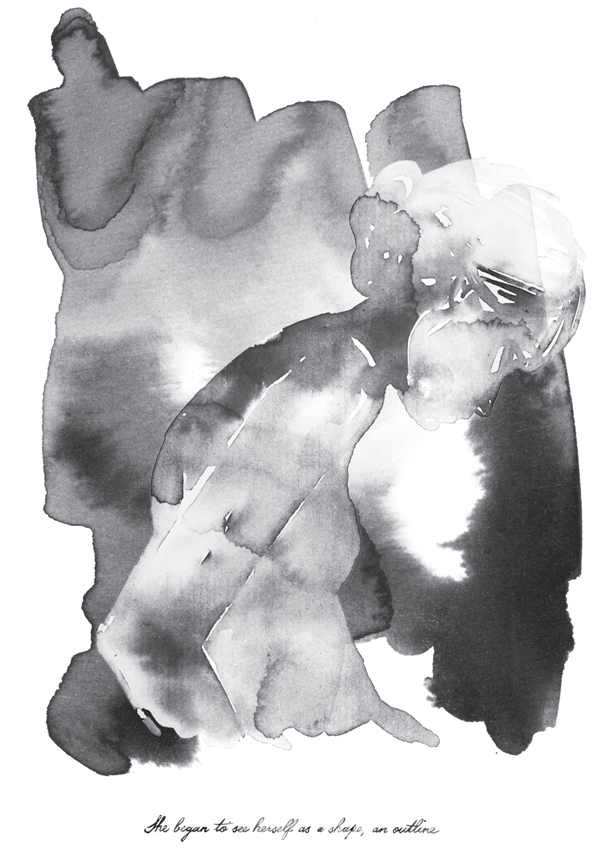
Illustration: Samantha Hahn.
She had hardly done any writing lately—not that you got rich from writing plays, at least not the kind of plays she wrote. But something had happened to her writing. There had been—well, you’d call it an incident, and as a playwright she knew that the problem with incidents is that everything gets blamed on them: they become a premise toward which everything else is drawn, as though seeking an explanation of itself. It might be that this problem would have occurred anyway. She didn’t know.
I asked her what the problem was.
“I call it summing up,” she said with a cheerful squawk. Whenever she conceived of a new piece of work, before she had got very far she would find herself summing it up. Often it only took one word: tension, for instance, or mother-in-law, though strictly speaking that was three. As soon as something was summed up, it was to all intents and purposes dead, a sitting duck, and she could go no further with it. Why go to the trouble to write a great long play about jealousy when jealousy just about summed it up? And it wasn’t only her own work—she found herself doing it to other people’s, and had discovered that even the masters, the works she had always revered, allowed themselves by and large to be summed up. Even Beckett, her god, had been destroyed by meaninglessness. She would feel the word start to rise, and she would try to hold it down but it kept coming, rising and rising until it had popped irreversibly into her head. And not just books either, it was starting to happen with people—she was having a drink with a friend the other night and she looked across the table and thought, friend, with the result that she strongly suspected their friendship was over.
She scraped her spoon around the bottom of the honey jar. She was aware, she said, that this was also a cultural malaise, but it had invaded her inner world to the extent that she herself felt summed up, and was beginning to question the point of continuing to exist day in and day out when Anne’s life just about covered it.
I asked her what the incident—if that was the word she had used—what the incident was that she had referred to earlier. She took the spoon out of her mouth.
“I was mugged,” she squawked. “Six months ago. Someone tried to kill me.”
I said that was awful.
“That’s what people always say,” she said.
She had by now finished the honey and was licking every last trace of it off the spoon. I asked whether I really couldn’t get her something else to eat, since she was obviously so hungry.
“I’d better not,” she said. “As I said, once I start I can’t stop.”
I suggested it might help if I gave her something defined, something limited whose ending was clear.
“Maybe,” she said doubtfully. “I don’t know.”
I opened the pink box Rosa had given me, which was sitting on the coffee table between us, and offered her the single cake that remained. She took it and held it in her hand.
“Thank you,” she said.
One consequence of the incident, she said, was that she had lost the ability to eat in a normal way—whatever that was. She supposed she must have known how to do it once, because she had got this far without ever really thinking about eating, but she couldn’t for the life of her remember how she had, or what she had eaten for all those years. She used to be married, she said, to a man who was a very good cook and who generally possessed an almost fanatical sense of order around food. The last time she had seen him, which was several months ago, he had suggested they go for lunch. He had chosen a fashionable restaurant, of a kind she no longer went to, for reasons of economy and also, she supposed, because she now lacked the necessary sense of entitlement, in that she felt she had no right to be in such places anymore. She had sat and watched him order and then slowly consume a starter, main course, and dessert, each dish very moderate and in its own way perfect—the starter had been oysters and the dessert, if she recalled, had been fresh strawberries with a dash of cream—followed by a small espresso, which he had downed in one swallow. She herself had ordered a side salad. Afterward, when they had parted, she had passed a doughnut shop and had gone inside and bought four doughnuts, which she consumed one after the other standing in the street.



